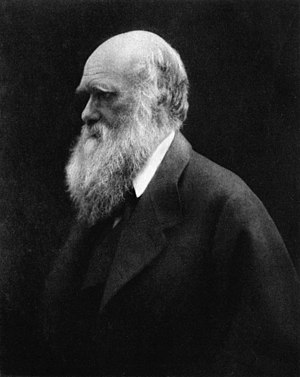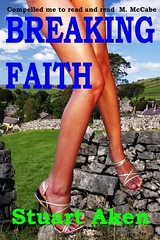
Toni V. Sweeney
is a true Southerner, born in
Georgia sometime after the War between the States but many years before the Gulf War. Her writing career began during extended convalescence after an automobile accident. Since then, she’s survived hurricanes in the South, tornados and snow in the
Mid-West, and earthquakes and forest fires in
California. When she writes as Icy Snow Blackstone, she is using the name of an ancestor born in 1802 in Northern Georgia.
Tell us about your books in a few sentences.
The latest book written under my own name is
Serpent’s Tooth, released through Class Act Books. It’s a contemporary retelling of the
Faust legend, set in
Hollywood and on a remote ranch in the sand hills of the Nebraska Panhandle.
The latest book by my pseudonym, Icy Snow Blackstone, is Brother Devil, a contemporary romance and the sequel to Bargain with Lucifer, both also published by Class Act Books.
What qualities do you need to be a successful writer?
This is going to sound callous and jaded, but… A writer personally has to be talents and determined, but from all I’ve seen, the first and foremost thing someone needs to become a successful writer is… Luck! We’ve had discussions about this on many writers loops of which I’m a member and the consensus is that no matter how good a writer you are, if your story is something the least different and not simply a cookie-cutter look-alike, if you aren’t lucky enough to find an editor to give your story a read instead of just sending it back, or an agent willing to take a chance, you’re dead in the water. Publishers say they want something new and different but the truth is they’re afraid to take a chance on it when it comes along. That’s why we have so many reruns on TV and remakes in the movies. You need talent to write a good story, you need determination to continue to send it out, but you need luck to find that specific editor/agent who’s going to give you that Big Chance.
 What is your working method?
What is your working method?Not the best in the world, I’m sure. I procrastinate. I’ll fight sitting down and typing that first word, so I’ve formulated a tried and true rule to speed me on my way: if I have an idea for a story and it persists for more than three days, I must write it. After that, it’s simple: Go to computer. Sit. Type.
What is the single biggest mistake made by beginners to writing?
Writing a story and sending it off immediately. Let it sit a few days. Read it again. Edit, reconstruct, change. Let someone else read it. Edit, reconstruct, change some more. Maybe even a third or fourth time. Then, send it in.
How did you come to write this particular book?
Serpent’s Tooth is an example of what I said in #3. I like to say that it came to me in a dream, which is partly true. I had a dream about an actor from the 1950’s and awoke with that memory, and a name. Two days later, I was watching an old 1950 sci-fi movie on TV and this particular actor was in it and the name of one of the characters in the movie was the name I’d awakened with. Well! Had to take that as a sign, didn’t I? So then I began to think about that name. Three days later, the germ of the idea for Serpent’s Tooth had sprouted.
If you have a favourite character in your novel, why that particular one?

My favorite character isn’t from Serpent’s Tooth but is from a sci-fi series that I have. Sinbad sh’en Singh in
The Adventures of Sinbad. So far, there have been three Sinbad stories published. Sin is a smuggler, half-feline, half-human. He’s rude, crude, loyal to a fault, and genetically pre-disposed to be a faithful husband and father once he takes a mate. He’s got a wicked sense of humor and a temper, and he’s a handy person to have on your side in a crisis. Besides all that, he’s drop-dead handsome and the heir to a shipping conglomerate. Need I say more? (And I’ve had several readers agree with me!)
How can people buy your books?
To what extent are grammar and spelling important to a writer?
This is one of my soap box subjects. Unless a writer is portraying a character as illiterate or uneducated, I feel there is no excuse for misspelled or ungrammatical usage in a novel. If these are present, the editor should catch them and if the editor doesn’t…shame on both of them! I used to be an English teacher and I review novels on my website and I continually see both these mistakes in the stories I read. The incorrect usage of “You and I” is the most common one, the second is the use of homonyms—words sounding alike but having different meanings. One I’ve seen many times is “reign” in place of “rein.” That grinding sound you hear is my teeth gritting.
How much revision of your MS do you do before you send it off?
I generally set a manuscript aside after completing it and let it get “cold.” After a couple of weeks, when I’m no longer completely familiar with it as I’d be if I’d just finished it, I read it again, checking for typos, grammar, continuity. I may rewrite some of it during that time. I’ll do this two to four times before submitting it anywhere. I have to make certain the manuscript is in the best shape I can make it because I have one publisher who never sends me any galleys. He simply takes what I send him and gives it to the printer.
Where and when is your novel set and why did you make these specific choices?
Though there is a brief interlude on a Caribbean island, most of Serpent’s Tooth has two main settings—Hollywood and a ranch near the little town of Sonderlind in western Nebraska in the sand hills. I wanted to show the contrast between the hero’s life before he is “discovered,” which to a certain extent explains why he does the things he does to get ahead, and then take him back to his home after he tries to abandon the “Dream Factory” to show the life he tries to resume.
To what extent do you think genre is useful in the publishing world?

I’m not certain it
is useful but humans have a propensity—almost a need—to categorize everything, so they like to place their authors in categories, also. It helps when you’re buying a book because you know which section to go to, but sometimes, it may keep a person from trying a certain type of book. If you like a love story with snappy dialogue and a little comedy thrown in, and you see a novel classified as a suspense mystery, you’re not going to buy it, even though closer examination might reveal that it’s a suspense mystery with a heavy dose of comedic situations and give-and-take between hero and heroine. By poking around in sections I usually don’t check out, I’ve accidentally discovers some gems like this which I would otherwise have disregarded because of their genre.
What are your writing habits?
I just sit down and write. And keep on writing until I’m through telling the story.
How do you know where to begin any given story?
That’s a good one. Usually that first idea tells me where. If I start thinking of a battle scene, the story starts there, then may flashback to the why of the battle or the who. Sometimes I think of the subject first or the characters or a specific scene. Serpent’s Tooth starts off with the hero leaving Hollywood. He stands on the porch of his million dollar beach bungalow, flips a coin and decides his fate. Gets in his car and drives off into oblivion. And the next scene is twenty-five years later. That was the idea I had for the story: What if a famous movie star disappears, and a quarter of a century later, a former fan meets him? What would happen?
What sort of displacement activities keep you from actually writing?
Homemaking. Family. Illness. A new comic arriving in the mail. Anything! As I said, I’m a Procrastinator par excellence, though I usually manage to let only really serious problems keep me away from the computer now. For example, while I was in the middle of preparing the answers to these questions, I had to drop everything and take care of my grandchildren while their parent was taken to the hospital.
Do you have support, either from family and friends or a writing group?
I’m a member of several writers’ loops (and some members are old school friends) and they give support. After thirty years, my family is finally coming to accept the idea that perhaps I really am a writer after all.
Is presentation of the MS as important as most agents and publishers suggest?
Another good question. If by presentation, you don’t mean the actual form of the manuscript (neatness, correct spelling, formatting, etc.) but the pitch, blurb, or synopsis, my opinion on that is ambivalent. It’s nice to have some idea of what the story’s about, so it can be channeled to the correct editor. But… Some people have difficulty writing blurbs or synopses. I’m one of them. I tend to get facetious when trying to tell someone about a novel I’ve written and I usually have to rewrite it several times to weed out all the smart-ass remarks. I’ve also read novels which I thoroughly enjoyed and also read their pitches and told myself I was glad I read the novel first because if I’d done it the other way around, I wouldn’t have bothered. Sometimes I think it would be best if we could just put in our cover letters: Here’s my novel. It’s a mystery with supernatural overtones(or whatever). And let it go at that.
How long does it normally take you to write a novel?
It depends on how enthusiastic I am about the subject (and if I have a deadline). One novel took me two weeks to write and I had to do only one correction. Another took me six months because I researched my subject and wanted the facts to be as meticulous and correct as possible.
What are your inspirations?
No more than any other writer… To become a New York bestseller, have my novels bought by Hollywood and turned into blockbuster successes and then into a long-running Emmy-winning television series. In other words, I want to be either JK Rowling or Stephenie Meyer!
If there’s a single aspect to writing that really frustrates you, what is it?
Losing a scene. I get some of my best dialogue and descriptions just before I fall asleep and I always think to myself, “I’ve got to remember this,” but in the morning, they’re gone! I wish there was a machine I could put on my head which would transcribe that great scene or that great conversation into my computer so in the morning it would be there, just waiting for me to insert it into the story. Instead, I sit there and grit my teeth and mumble, “Why can’t I remember?”
Do you think writing is a natural gift or an acquired skill?
I think it’s natural and some people develop it better than others. I’ve read some stories which had great potential but were written in such a way they were deadly boring.
What are you writing now?
At present, I’ve just finished a story called Runaway Brother which will be presented under Icy Snow Blackstone’s name. And I’m starting on another, The Seventh Mothman, an alternate universe story set in a country similar to 17th-century France where soldiers fight a war using flying machines similar to the one invented by Leonardo da Vinci.
Is there any aspect of writing that you really enjoy?
I like to type. I used to play the piano but during a particularly impecunious period, had to sell it to pay the rent, so I joke that since I don’t have the piano any more, typing is as close as I can come to using a keyboard and making music. That’s the part I enjoy best. Hitting those keys and seeing those words come out into a coherent, entertaining story.
Do you have a website or a blog that readers can visit?
Given unlimited resources, what would be your ideal writing environment?
Nothing ostentatious, just a simple, unpretentious mansion on my own private island off the coast where I could get up and write as long as I wished—or not, as the case may be—while my cook prepared me scrumptious meals with which she would tempt me away from the computer, and my assistant was there to field phone calls and run errands and buy groceries and sew buttons on my clothes and do all the other mundane little things I do to prevent myself from getting to work and w*r*i*t*i*n*g! And every other weekend, I’d invite my writer friends out to have brainstorming sessions while we sat around the pool and drank gin-and-tonics or margaritas or mimosas or whatever and nibbled on h’or doerves (also prepared by the cook).
Where do you actually write?
In my living room, which is completely devoid of furniture except for my stereo (to supply the proper musical atmosphere) my reference books (lined up around the baseboards), several Marvel/DC Comics action figures, and my potted plants.
Codes for trailers:
Brother Devil:
Sinbad’s Last Voyage:
Embed:
 Image via Wikipedia
Image via Wikipedia








































